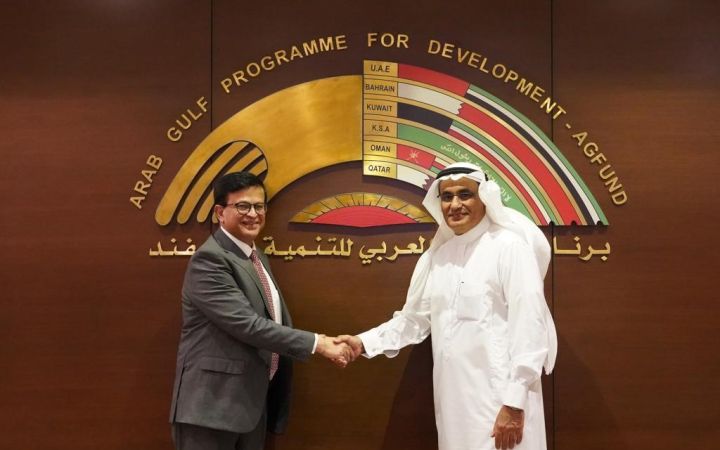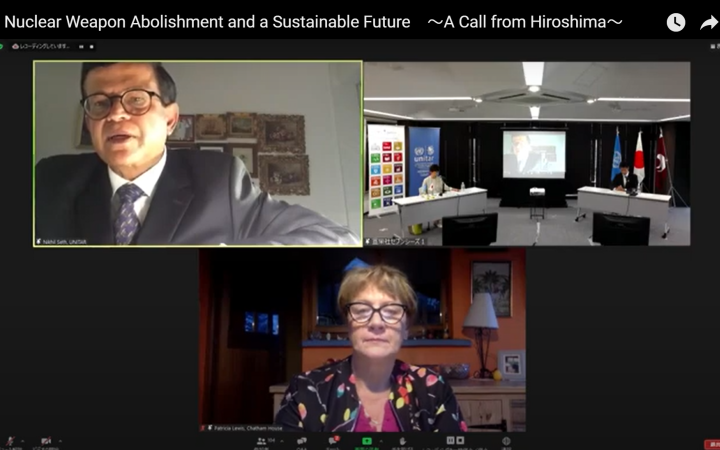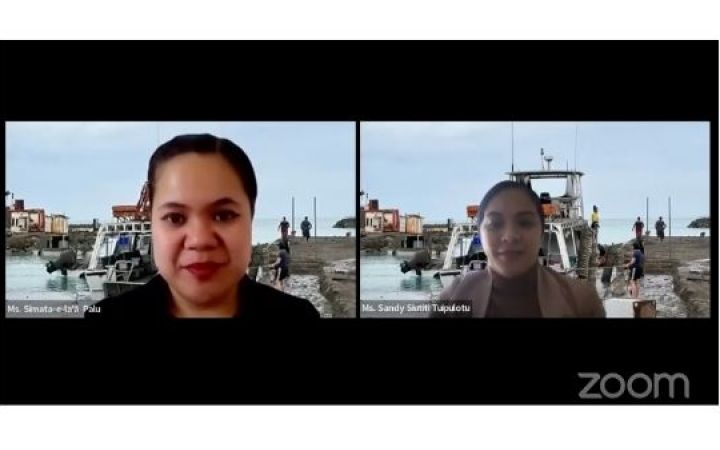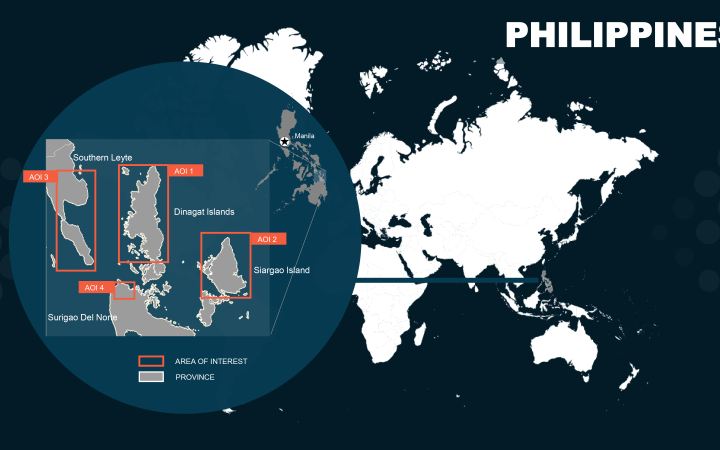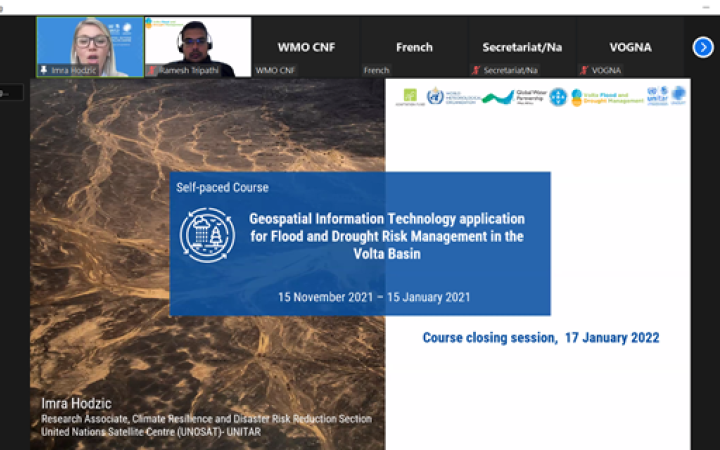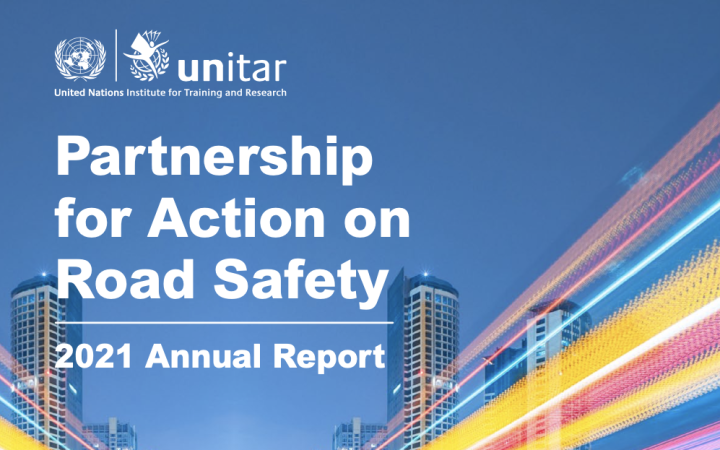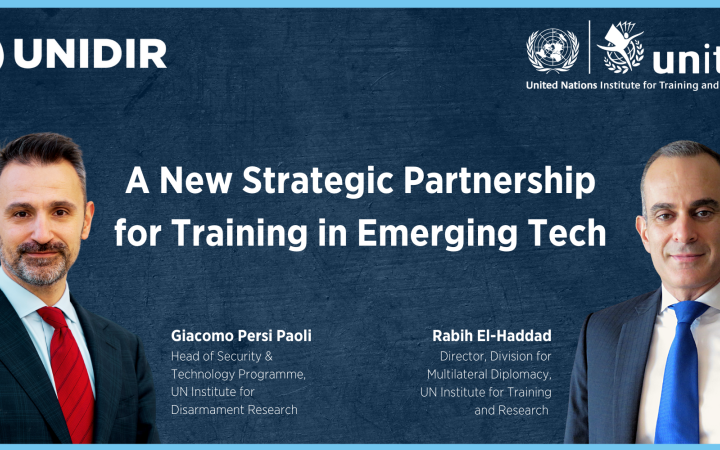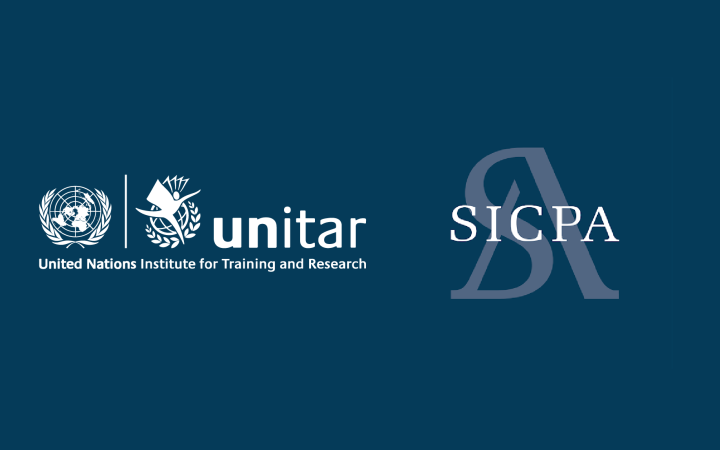Displaying 901 - 910 of 1527
HRH Prince Abdul Aziz Bin Talal Al Saud, President of the Arab Gulf Programme for Development, AGFUND, and Mr. Nikhil Seth, Executive Director of the United Nations Institute for Training and Research, UNITAR, signed an agreement today to announce the establishing of the Global Partnership Hub.
15 February 2022, Hiroshima, Japan – Over seventy-six years ago, the atomic bomb was dropped on Hiroshima, claiming tens of thousands of lives and wounding many more. Today, the city and the world still grapple with the threat of nuclear weapons. With its office in Hiroshima, UNITAR has an inherent interest in peacebuilding, post-conflict reconstruction and disarmament and promotes broad dialogue to create a peaceful and sustainable world.
Multilateral Diplomacy - Building capacities in the area of gender, women’s leadership and mentoring
“I have applied the mindfulness skill and also the stress management techniques. My approach to situations and circumstances has also been modified as I try to incorporate cultural diversity and my approach interacting with my colleagues.”
11 February 2022, Hiroshima, Japan – Two UNITAR alumnae from Tonga reported on the aftermath of the eruption and tsunami that struck their country, at a UNITAR webinar held on 26 January 2022. Sandy Siutiti Tuipulotu and Simata-e-la'ā Palu, both currently based in Japan, were able to apply what they learned in the 2021 UNITAR disaster risk reduction (DRR) training programme to help their friends and family in the disaster
Dans le cadre de l’appropriation du projet par les parties prenantes marocaines, PAGE a initié durant deux jours (ndlr 18 et 19 janvier 2022) une session de formation sur Zoom pour les parties prenantes au Maroc. Organisée par UNITAR et l’agence lead ONUDI, PAGE Maroc a convié plusieurs ministères et organismes à la formation portant sur « l’Économie Verte Inclusive et la relance économique post COVID-19 ». La première journée de formation a porté sur l’appui de PAGE au niveau global pour favoriser une économie verte et inclusive, le fonctionnement de PAGE Maroc, l’EVI et la relance économique post-COVID suivi du groupe de travail sur le thème « Opportunités et défis pour une relance économique verte et inclusive au Maroc ». Cette journée de formation s’est achevée par le partage d’expérience de PAGE Sénégal. La seconde journée quant à elle, visait à répondre à cette interrogation « Quelles priorités pour PAGE au Maroc ? » Pour y arriver, les participants ont été subdivisés dans 5 groupes avec 5 thèmes différents animés par les 5 agences onusiennes à savoir PNUE, PNUD, UNIDO, BIT et UNITAR.
A category 5 Tropical Cyclone struck the Philippines in December 2021, causing significant damage and affecting a large part of the population. FUNOSAT’s Emergency Mapping service was activated to support the planning and coordination of emergency response operations with satellite imagery analysis.
08 February 2022, Geneva, Switzerland – Between 15 November 2021 and 21 January 2022, the UN Satellite Centre UNOSAT-UNITAR delivered a two-month regional e-learning course for Volta basin countries entitled “Geospatial Information Technology applications for Flood and Drought Risk Management in the Volta Basin”.
15 February 2022, Geneva, Switzerland – Capacity-building on road safety management is at the core of the work of UNITAR. The Partnership for Action on Road Safety – 2021 Report summarizes some of our training activities and projects aimed at reducing deaths and injuries caused by traffic crashes.
3 February 2022, Geneva, Switzerland - The United Nations Institute for Disarmament Research (UNIDIR) and the United Nations Institute for Training and Research (UNITAR) announce a new partnership to jointly design and develop a range of innovative training programmes.
The UNIDIR-UNITAR cooperation will leverage each institution’s unique expertise to design and create innovative training programmes that will address a growing need for capacity-building at the intersection between emerging technologies, international security, and disarmament.
The UNIDIR-UNITAR cooperation will leverage each institution’s unique expertise to design and create innovative training programmes that will address a growing need for capacity-building at the intersection between emerging technologies, international security, and disarmament.
27 January 2022, Geneva, Switzerland - The United Nations Institute for Training and Research (UNITAR) and SICPA SA have signed Agreement to Issue Digital Certificates for Hackathons.


